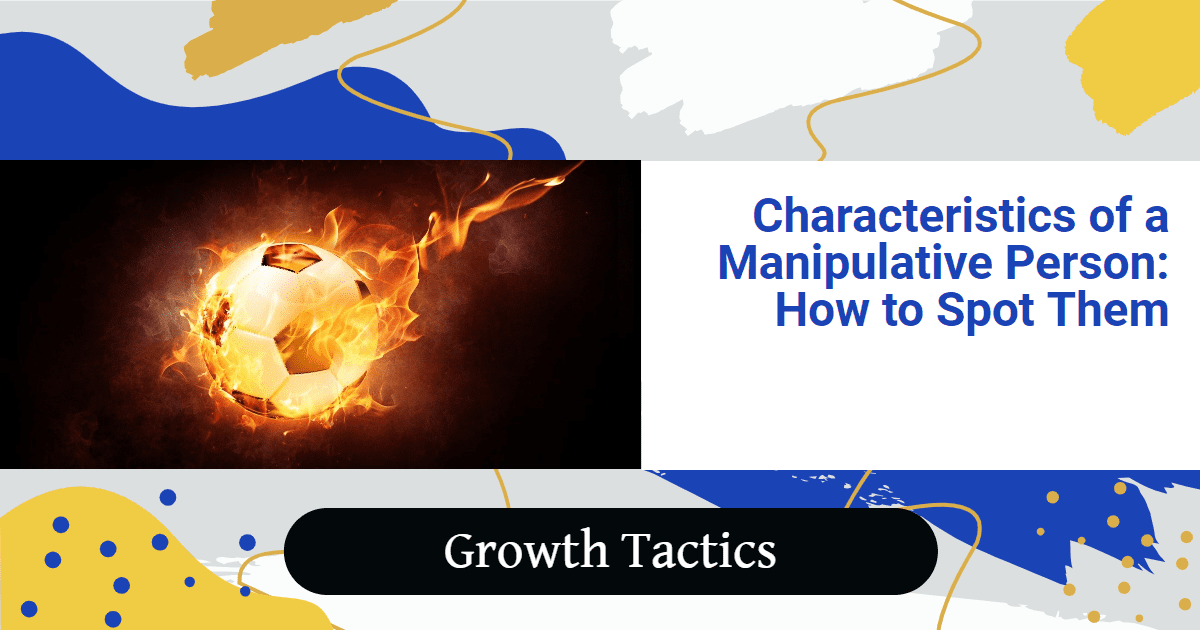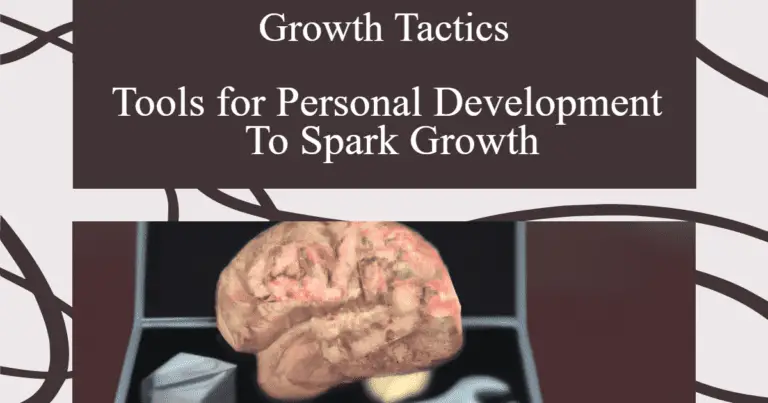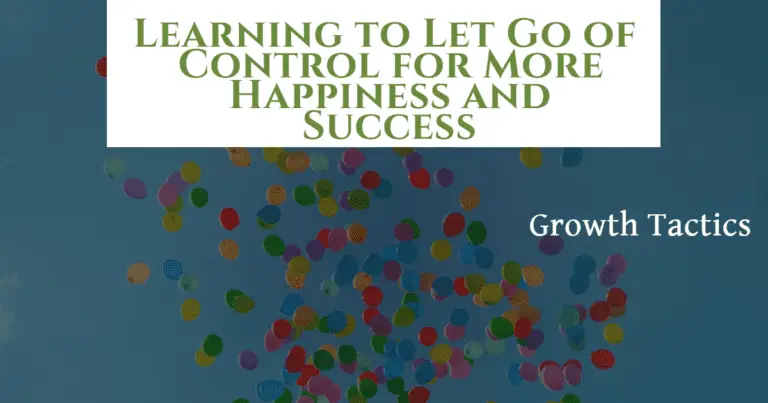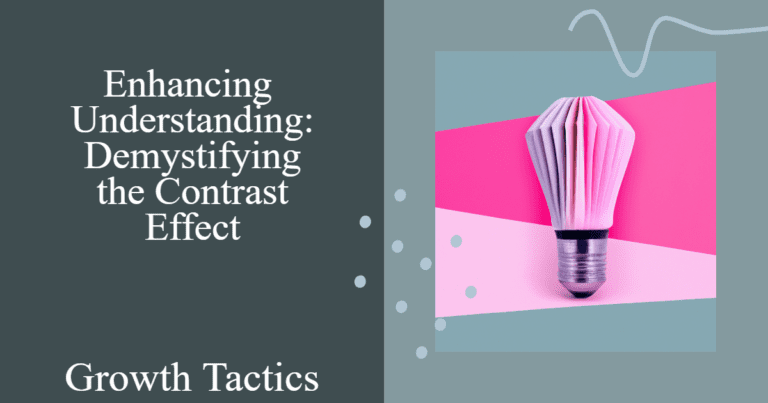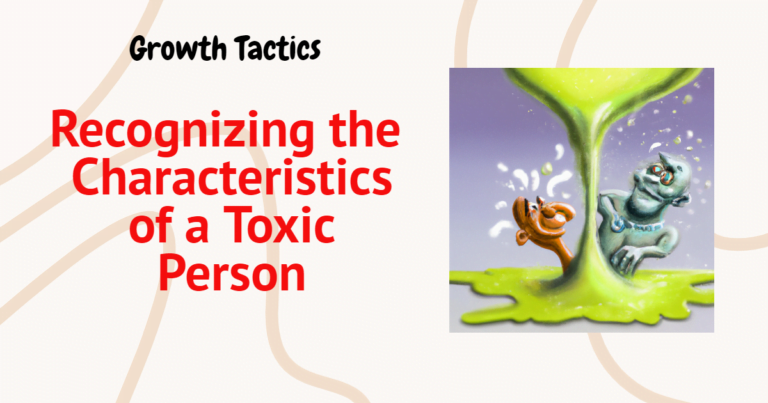Hey there! Are you curious about manipulative behavior and how to deal with manipulative people? Well, you’re in the right place. In this article, we’re going to explore the world of manipulation, uncover its various forms, and discuss ways to cope with manipulative individuals. So, let’s dive right in!
Jump To Section
1. Manipulation: The Art of Influencing Others
Manipulation. It’s a term we’re all familiar with, but what exactly does it mean? Manipulation is the act of exerting control and influence over someone else to get what you want. It can take many forms, from subtle tactics to more overt behaviors. But regardless of the method, manipulative people are masters at twisting situations to their advantage, often at the expense of others.

2. Signs of Manipulation: How to Spot a Manipulator
Have you ever had that nagging feeling that someone is trying to manipulate you? It’s not a pleasant thought, but it’s important to be able to recognize the signs of manipulation to protect yourself. In this section, we’ll explore some common indicators that someone may be a manipulator and share tips on how to spot them.
Watch Out for the Victim Card
Manipulators often love to play the victim. They’ll twist situations to make it seem like they’re the ones being wronged, even when they’re the ones pulling the strings. They know how to tug at your heartstrings, making you feel guilty or sorry for them. Keep an eye out for constant self-pity and a tendency to avoid taking responsibility for their actions. Trust your instincts if something doesn’t feel quite right.
Beware of Flattery and Charm
Manipulators are masters of flattery. They’ll shower you with compliments and make you feel like the most important person in the world. But be cautious – this charm is often a ploy to gain your trust and control. Pay attention to excessive praising, especially if it seems insincere or disproportionate to the situation. A manipulator’s flattery can be a mask that conceals their ulterior motives.
Notice the Web of Lies
One telltale sign of a manipulator is their ability to weave intricate webs of lies. They’ll twist the truth, exaggerate facts, or even create entirely fictional stories to suit their needs. Pay attention to inconsistencies in their stories and be wary if they often change their version of events. A manipulator’s lies can be elaborate, but with a keen eye, you can spot the inconsistencies and uncover the truth.
Trust Your Gut Feeling
Sometimes the most reliable indicator of manipulation is your intuition. If something feels off about a person or a situation, it’s important to trust your gut feeling. Our instincts are powerful tools that can help us identify potential manipulation. If a person’s words and actions don’t align, or if you sense a hidden agenda behind their behavior, listen to your intuition and proceed with caution.
Look for Emotional Manipulation
Manipulators are skilled at exploiting your emotions to get what they want. They’ll push your buttons, playing with your insecurities and vulnerabilities. Be cautious if someone uses guilt-tripping, emotional blackmail, or other forms of emotional manipulation to control your actions. Remember, your emotions are your own, and nobody should have the power to manipulate them.
Seek Outside Perspective
When in doubt, seeking an outside perspective can provide valuable insights. Talk to a trusted friend or confidant about the situation or behavior that’s raising red flags for you. They can offer an unbiased viewpoint and help you see things more clearly. Sometimes an outsider’s perspective can shed light on manipulation tactics that you may not have noticed on your own.

3. Gaslighting: When Manipulation Turns Psychological
One particularly insidious form of manipulation is gaslighting. Gaslighting involves manipulating someone’s perception of reality to the point where they doubt their own sanity. Gaslighters often twist facts, deny their actions, and use psychological tactics to make their victims question their memories and experiences. Recognizing gaslighting is essential in protecting your mental well-being and maintaining healthy boundaries.
4. Guilt-Tripping: The Manipulator’s Weapon of Choice
Another common tactic used by manipulative individuals is guilt-tripping. They know just how to make you feel guilty for setting boundaries or standing up for yourself. They may use passive-aggressive remarks or give you the silent treatment, all in an attempt to manipulate and control your actions. It’s important to recognize these guilt-tripping tactics and not let them sway you from asserting your needs and boundaries.
5. Emotional Manipulation: Taking Control of Your Feelings
Manipulative people are often experts at emotional manipulation. They know how to push your buttons, exploit your insecurities, and manipulate your emotions to gain control over you. By understanding the techniques they use, such as playing with your vulnerability or using flattery to gain your sympathy, you can start to regain control over your emotions and protect yourself from their influence.

6. Ways to Cope: Taking Back Your Power
Dealing with manipulative people can be challenging, but there are strategies you can employ to regain control and protect yourself. Setting clear boundaries is crucial, as manipulators often try to blur the lines to suit their own agenda. Additionally, seeking support from trusted friends, family, or a professional psychotherapist can provide you with the tools to navigate these difficult situations. Remember, you don’t have to face it alone.
7. Understanding Manipulative Personalities: Traits to Look Out For
Hey there! It’s important to be able to recognize manipulative personalities so that you can protect yourself from their tactics. In this section, we’ll dive into the traits you should be on the lookout for. By understanding these traits, you’ll be better equipped to identify manipulative individuals and maintain healthy relationships.
Lack of Empathy and Responsibility
One key trait of manipulative people is their lack of empathy. They struggle to understand or care about the feelings and needs of others. It’s as if they’re only focused on their own desires and priorities. Additionally, manipulators often avoid taking responsibility for their actions. They’ll shift blame onto others or make excuses to escape accountability. If someone consistently shows a lack of empathy and refuses to take responsibility, it could be a sign of manipulation.
Frequent Guilt Trips
Manipulators excel at using guilt as a tool to get what they want. They’ll make you feel guilty for setting boundaries or asserting yourself. They use passive-aggressive comments, emotional blackmail, or even the silent treatment to make you question your choices. It’s important to recognize these guilt-tripping behaviors and not let them sway you. Remember, you have the right to set boundaries and prioritize your own well-being.
Passive-Aggressive Behavior
Have you ever encountered someone who continuously makes sarcastic remarks or gives you backhanded compliments? These are classic examples of passive-aggressive behavior, often employed by manipulative individuals. They mask their true intentions behind seemingly harmless comments, leaving you feeling confused or hurt. By being aware of these subtle jabs and recognizing them as signs of manipulation, you can protect yourself from their influence.
Constant Need for Control
Manipulative people thrive on control and manipulation. They want to dictate the actions and choices of others to suit their own agendas. They’ll push and pull, using tactics like gaslighting and emotional manipulation to maintain dominance. It’s essential to identify this need for control early on and set strong boundaries. Remember, you have the right to make your own decisions and live life on your terms.
Shifting the Focus
Manipulators have a knack for diverting attention away from their own actions or behavior. They’ll deflect blame onto others or shift the conversation back to themselves, making it challenging to hold them accountable. By observing if someone consistently steers conversations back to themselves or avoids taking responsibility, you can spot potential manipulators. It’s crucial to ensure that relationships are built on mutual respect and open communication.
Trust Your Instincts
When it comes to identifying manipulative personalities, trust your instincts. If something feels off about a person or their behavior, chances are there’s a reason for it. Your gut feeling is a powerful tool, so listen to it. If someone’s words and actions don’t align, or if you sense manipulation tactics at play, it’s important to prioritize your own well-being and set appropriate boundaries.
Understanding these traits can help you navigate relationships more effectively and protect yourself from manipulative behavior. Remember, you have the power to surround yourself with positive influences and foster healthy connections. By staying vigilant, trusting your instincts, and setting boundaries, you can create a supportive environment for yourself and maintain authentic relationships. Keep shining bright, my friend!

8. Spotting Manipulative People: Questions to Ask Yourself
To better spot manipulative people, ask yourself the following questions: Do they always try to bring the conversation back to themselves? Do they often make you feel guilty for their problems? Do they have a tendency to manipulate others to gain favor or control? These questions can help you assess the motives and behaviors of those around you and identify manipulative patterns.
9. Life Without Manipulation: Building Meaningful Relationships
Breaking free from the grip of manipulation allows you to cultivate healthy, meaningful relationships. By recognizing and avoiding manipulative individuals, you can surround yourself with people who respect your boundaries and contribute positively to your life. Remember, you deserve to be treated with kindness and respect.
10. Key Takeaways: Protecting Yourself from Manipulation
In summary, manipulation is an insidious tactic used by certain individuals to control and influence those around them. It often takes the form of gaslighting, guilt-tripping, and emotional manipulation. By recognizing the signs of manipulation, setting boundaries, and seeking support when needed, you can protect yourself and forge meaningful connections with others.
Remember, you have the power to take control of your own life and protect yourself from manipulative behavior. Trust your instincts, surround yourself with supportive individuals, and never be afraid to seek help if you need it. Stay strong and stand up against manipulation!
So, now you’re equipped with the knowledge to spot manipulative people and the strategies to protect yourself. Go out there and navigate the world with confidence, my friend!

